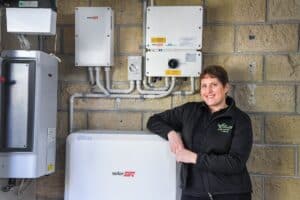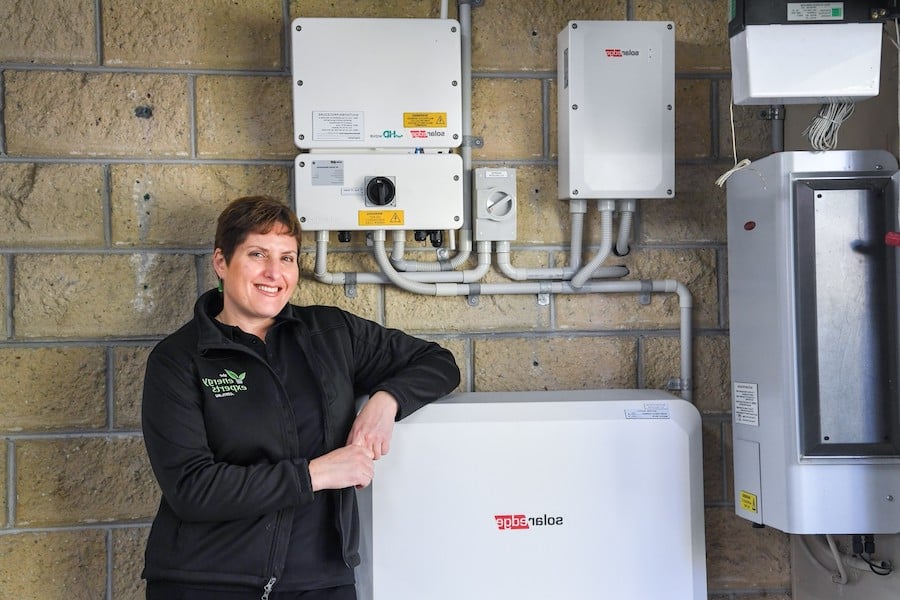Elon Musk’s all-conquering Tesla Model 3 accounted for a staggering 58.5% of that figure, with just over 12,000 vehicles sold last year. That result boosted EVs’ market share to 2% of the new car market – up from 0.8% in 2020.
EVs and Solar Systems
As EVs go mainstream, you might be wondering whether an electric car can run on solar power.
While you can put your solar power and/or battery towards anything you like – including charging your EV – it takes around 60kWh of electricity to take a Tesla Model 3 from empty to full.
That’s the equivalent of what a 15kW solar power system produces on average each day.
So does this mean EV and solar systems aren’t the perfect pairing? No. Rather, it means you should think about tomorrow’s needs today by installing high-performance equipment and oversizing your system in readiness for an EV.
It makes sense to choose higher-performance equipment – especially if you have limited space – so you can get maximum yield from the available roof space.
Solar inverters are a critical piece of the puzzle too. You should choose an inverter that has an integrated EV charger built into it (or a model that can easily retrofit an EV charger), such as a SolarEdge.
You want your system to produce enough energy to cater for both your future EV’s charging needs and your home’s needs, so oversizing is critical.
Electric Vehicle Sales Surpass Diesel in Europe
Sales of new EVs in Australia may have tripled in the last year – but those numbers look less rosy when you compare them with Europe’s figures.
According to the European Automobile Manufacturers’ Association, in 2021:
- One in every 11 cars sold in Europe was electric
- Plug-in hybrids accounted for 19.6% of all new passenger cars registered across the EU, surpassing diesel sales for the first time ever
However, even those results pale in comparison with Norway, where a staggering 64.5% of all new cars sold in 2021 were fully electric, according to the Norwegian Electric Vehicles Association.
You don’t have to look far to see why EV sales are doing so well in the country, with the Norwegian government offering up attractive incentives such as:
- Exempting EVs from annual road tax
- Giving EVs a 50% discount on parking, toll road and ferry charges
Compare and contrast this with Australia, where there are a distinct lack of federal incentives or tax breaks to stimulate EV demand. Victoria, for example, actually penalises owners of electric cars and plug-in hybrids – charging them 2.5 cents per every kilometre they drive instead of a fuel excise.
Considering buying an EV and ready to go solar? Get a quote from The Energy Experts today and start saving.















